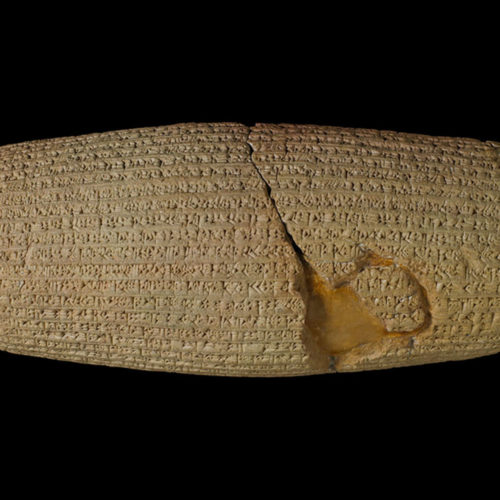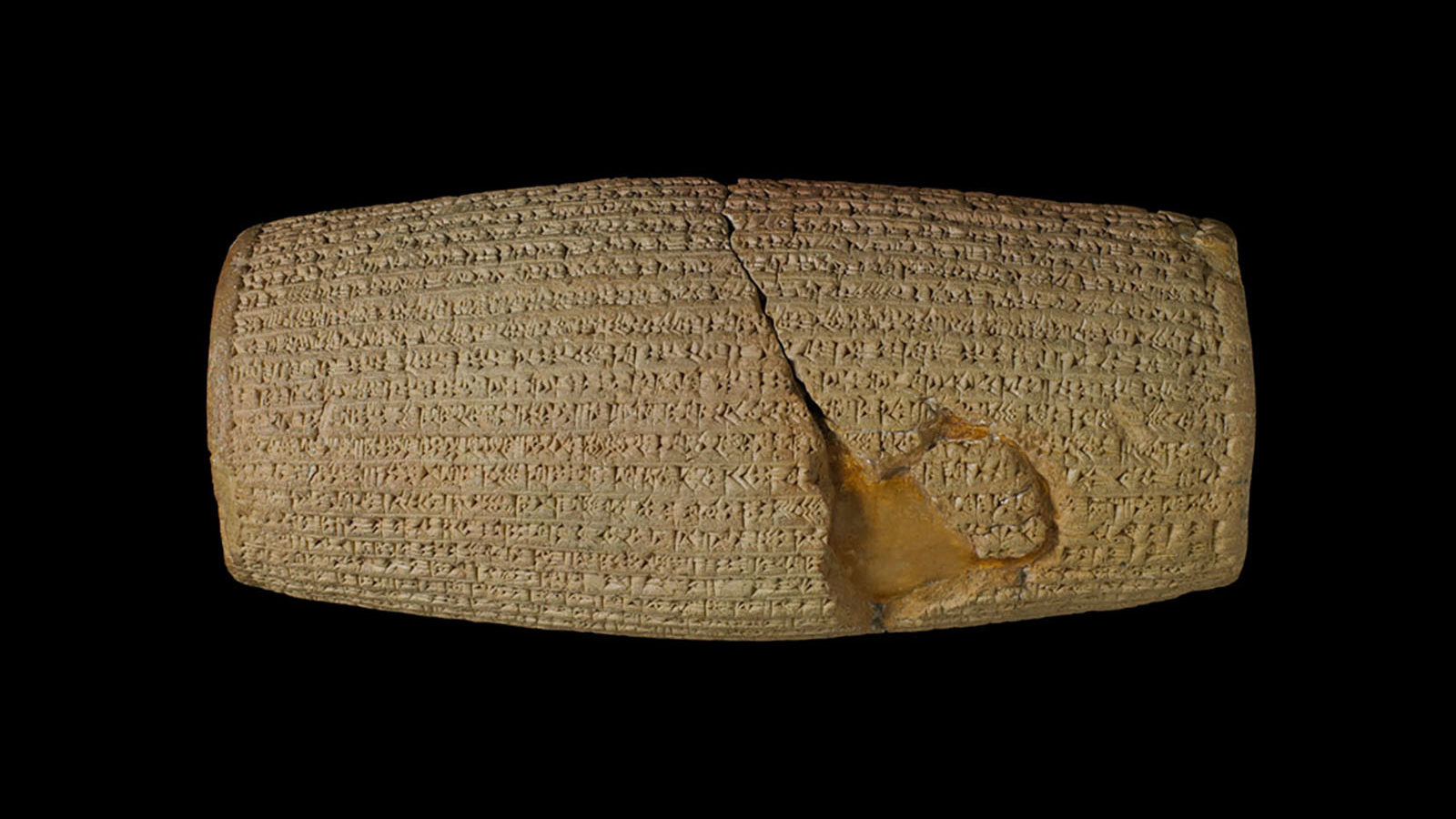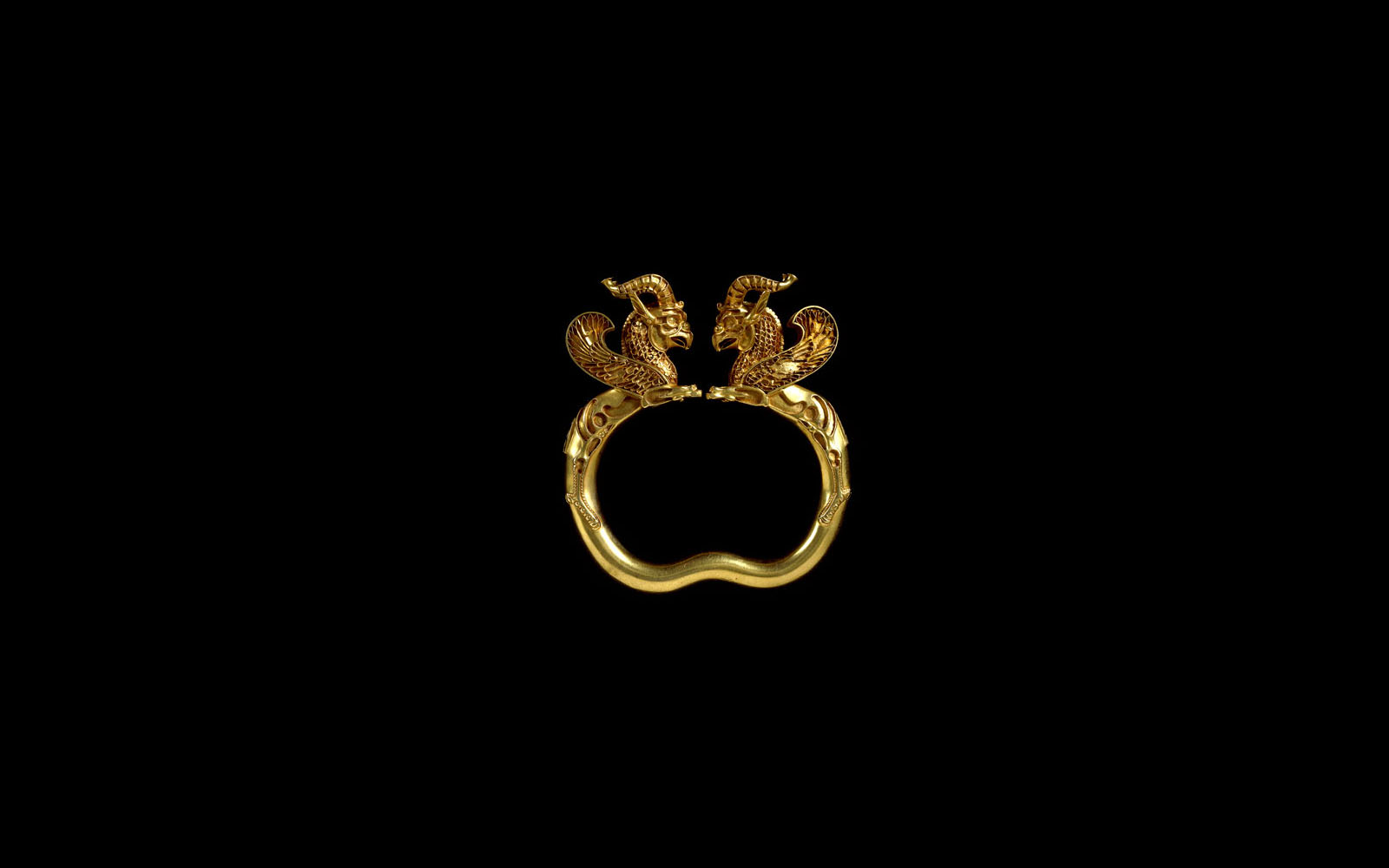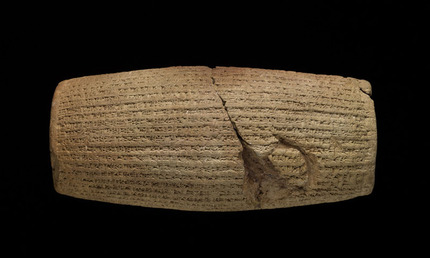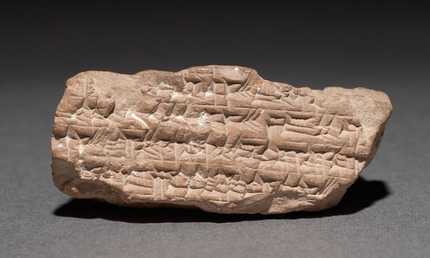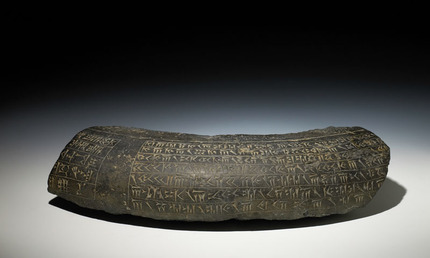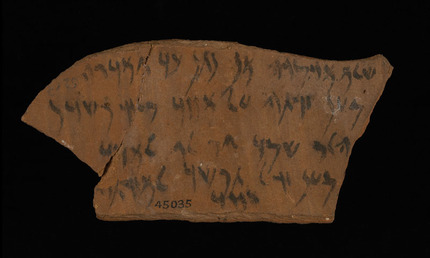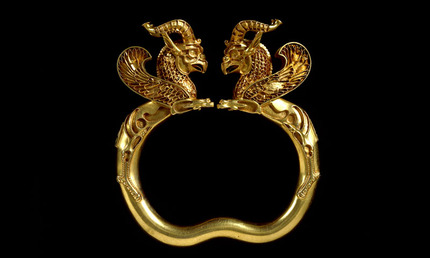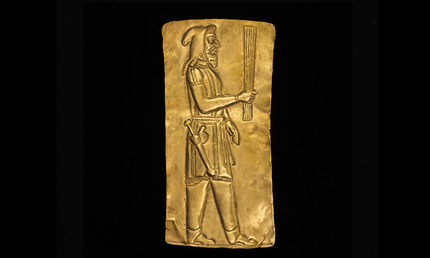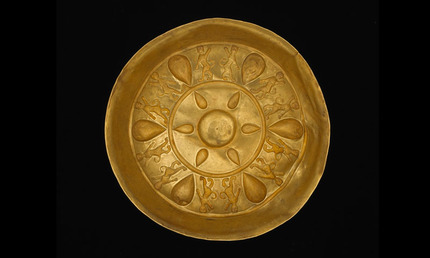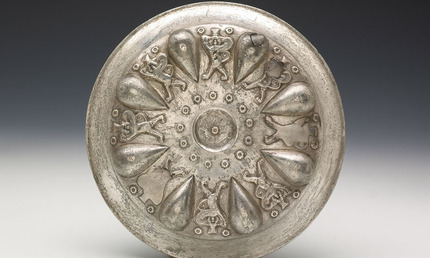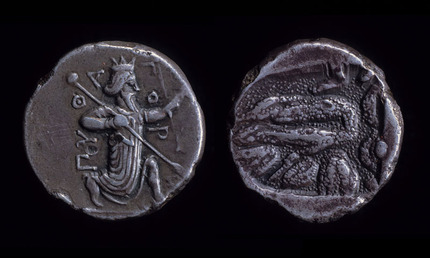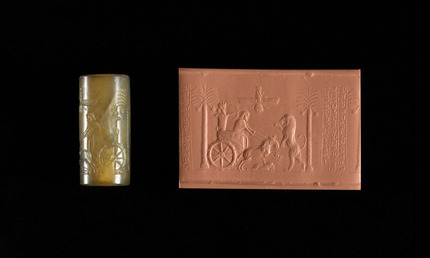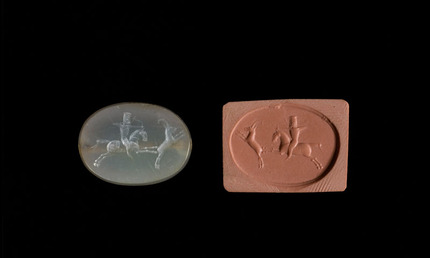The Cyrus Cylinder, 539–538 BCE. Iraq, Achaemenid period (550–330 BCE). Baked clay. © Trustees of the British Museum, 2013.4.1.
Fragmentary tablet with Babylonian cuneiform inscription, probably 539–538 BCE. Iraq, Achaemenid period (550–330 BCE). Unbaked clay. © Trustees of the British Museum, 2013.4.3.
Fragment of column base with Old Persian inscription, 404–359 BCE. Iran, Achaemenid period (550–330 BCE). Limestone. © Trustees of the British Museum, 2013.4.7.
Pottery ostracon inscribed in Aramaic, c. 475 BCE. Achaemenid, Persia. Clay. © Trustees of the British Museum, 2013.4.14.
Armlet (Oxus treasure), 500–330 BCE. Found in Tajikistan, Achaemenid period (550–330 BCE). Gold. © Trustees of the British Museum, 2013.4.10.
Gold plaque showing a priest (Oxus treasure), 500–330 BCE. Found in Tajikistan, Achaemenid period (550–330 BCE). Gold. © Trustees of the British Museum, 2013.4.6.
Bowl decorated with lions, 500–330 BCE. Found in Tajikistan, Achaemenid period (550–330 BCE). Gold. © Trustees of the British Museum, 2013.4.8.
Bowl with winged lions, 500–330 BCE. Achaemenid period (550–330 BCE). Silver. © Trustees of the British Museum, 2013.4.9.
Silver coin (stater), 410–370 BCE. Achaemenid period (550–330 BCE). Silver. © Trustees of the British Museum, 2013.4.17.
The Darius cylinder seal, 500–400 BCE. Obtained in Egypt, Achaemenid period (550–330 BCE). Chalcedony stone. © Trustees of the British Museum, 2013.4.4.
Stamp seal with hunting scene, 500–330 BCE. Achaemenid period (550–330 BCE). Chalcedony stone. © Trustees of the British Museum, 2013.4.13.

